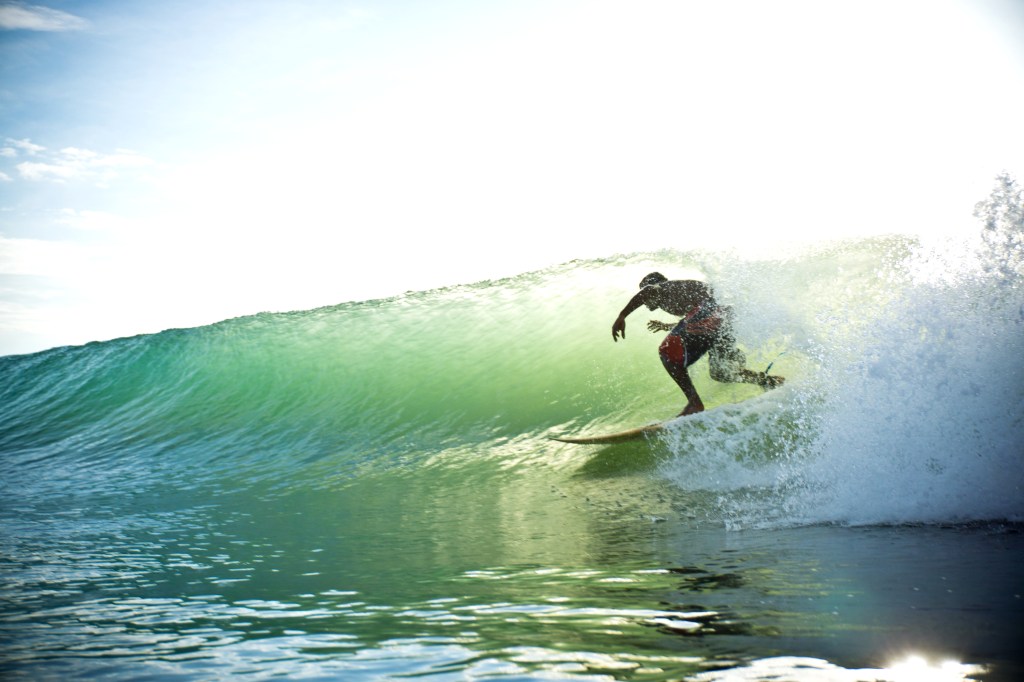On the pristine coast of the southern Indian state of Tamil Nadu, a small fishing village called Mahabalipuram is home to Mumu Surf School, one of the most popular surfing schools in India. It is run by Mukesh Panjanathan, known by all as Mumu, who lives two minutes from the school on the beach.
Every morning, he watches the sunlight sparkle on the seawater, and palm leaves sway with the breeze. Along the shore are kattumarams, a local term for boats made of tree trunks, which he used to sneak into the sea as a child to ride the waves. But as beautiful as it looks, the beach town has a dark side.
Videos by VICE
Mumu was only 12 – the youngest of six siblings – when his father, who suffered from alcoholism-related health problems, died by suicide.
“Alcohol addiction is an immense challenge for fishing communities” Vincent Jain, the deputy chief of the South Indian Federation of Fishermen Societies, a non-profit organisation dedicated to strengthening traditional fisheries, told VICE. “Most of them start drinking when they reach their teens and start earning some money.”

It is common for fishermen to drink up to three times a day, and paying for their addiction uses up much of the money they make. As things stand, their livelihood is already stretched thin because of large-scale commercial fishing activities and the climate crisis.
Mumu, now 36, said fishermen use alcohol as a “painkiller” because of the exhausting and precarious nature of their jobs. They paddle their boats into the sea as early as three in the morning, sometimes in very harsh conditions, and return with a batch of fish at sunrise. That is, if they’re in luck. The rest of the day leaves them with nothing to do.
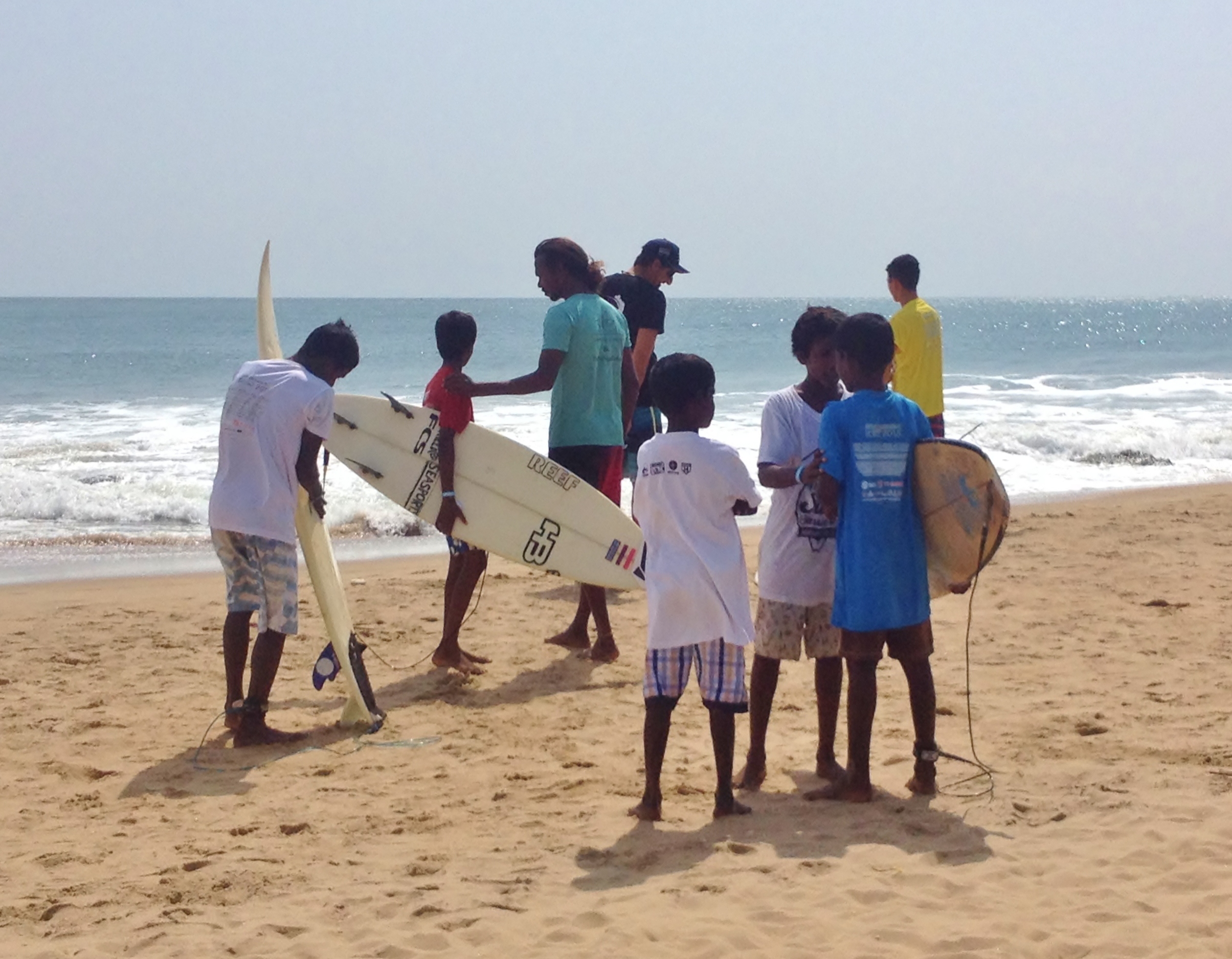
“Drinking helps them fall asleep; it makes them feel better. Slowly, it becomes a habit,” he said. “But things are changing.”
Over the last 15 years, the rise of surf culture in Mahabalipuram has not only transformed it into one of India’s top water sports destinations, but also opened doors for the young to pursue alternative careers. The trend is rooted in the state’s local fishing traditions. Tamil Nadu, which occupies 13 percent of India’s long coastline, has one of the country’s most thriving and active fishing communities, with over 608 fishing villages across 13 coastal districts and a fishermen population of over 1 million.
“The coming generations have much more freedom to choose what they want to do, instead of sitting around and getting drunk,” said Mumu, who is among the first surfers to emerge from the local fishing community.

Mumu charges students Rs 1,000 ($13.33) an hour for surfing lessons, but he teaches and lends surfboards to the local kids for free, as long as they help him clean the beach, too. “I want them to connect with the environment and protect the ocean. In my father’s time, we went 5 kilometres into the sea and returned with bags full of fish. Now people have to go 10 to 20 kilometres to find fish.”
In Kodi Bengre – a tiny fishing village of around 8,500 people on the coast of the neighbouring state of Karnataka – everyone knows Nithin Kharvi. Whenever Kharvi goes fishing, the 25-year-old returns with a batch of fish within half an hour of entering the sea, leaving the rest of the fisherfolk baffled.
“I notice the direction of the wind and tide, and can predict the movement of fish,” he said.

Although Kharvi spent a large part of his childhood baiting fish and crabs in the pond behind his house, he credits his fishing prowess to surfing. “The more time you spend catching waves in the ocean, the better you understand them,” he said.
Despite being an excellent fisherman, money from fishing alone cannot provide for his family that lives in the neighbouring village of Kundapura. “The fishing season only lasts from August until December. After that, there’s fewer fish to catch,” he said.
Kharvi has worked at sea since he was 14. He dropped out of school to support his family when his father’s health deteriorated because of alcohol abuse. “Every time he tried to reduce his intake, he would vomit,” he said.

At his first job as a crewman on a trawler, an industrial fishing vessel, he was so overworked he barely slept a wink at night. Now, when he is not fishing, he works as a surf instructor and campsite manager at the Shaka Surf Club, a surfing school in Kodi Bengre. “Surfing completely changed my life,” he said. “It’s made me easygoing.” He calls himself a “soul surfer” – someone who relishes every sunrise and sunset, and at night, prefers to sleep on a rooftop or in a hammock from where he can see the stars.
But some surfers want more out of the sport than just a leisurely lifestyle. In Kovalam – a fishing village an hour from Tamil Nadu’s bustling capital, Chennai – boys as young as 10 are filled with ambition. They aspire to represent India at international surfing championships, especially after the sport’s inclusion in the Olympics this year. The village has about 100 surfers, 14 surf instructors and seven surf schools. It also hosts the Covelong Point Surf Festival every year, which attracts over 15,000 surf enthusiasts and competitors from India and abroad.
“It’s a great chance for young surfers to meet new people, develop their communication skills, and expand their knowledge of surfing,” Dharani Selvakumar, a 29-year-old surf instructor in Kovalam, told VICE.
Fishing was never a career option for Selvakumar. His father always wanted him to be an engineer, and surfing was unacceptable. “He thought I was wasting my time,” said Selvakumar. His father would come home drunk and pick fights with his mother, even physically abuse her. “I stayed away from him and only went home to eat,” he said. “Sometimes, I would sleep on the beach.”
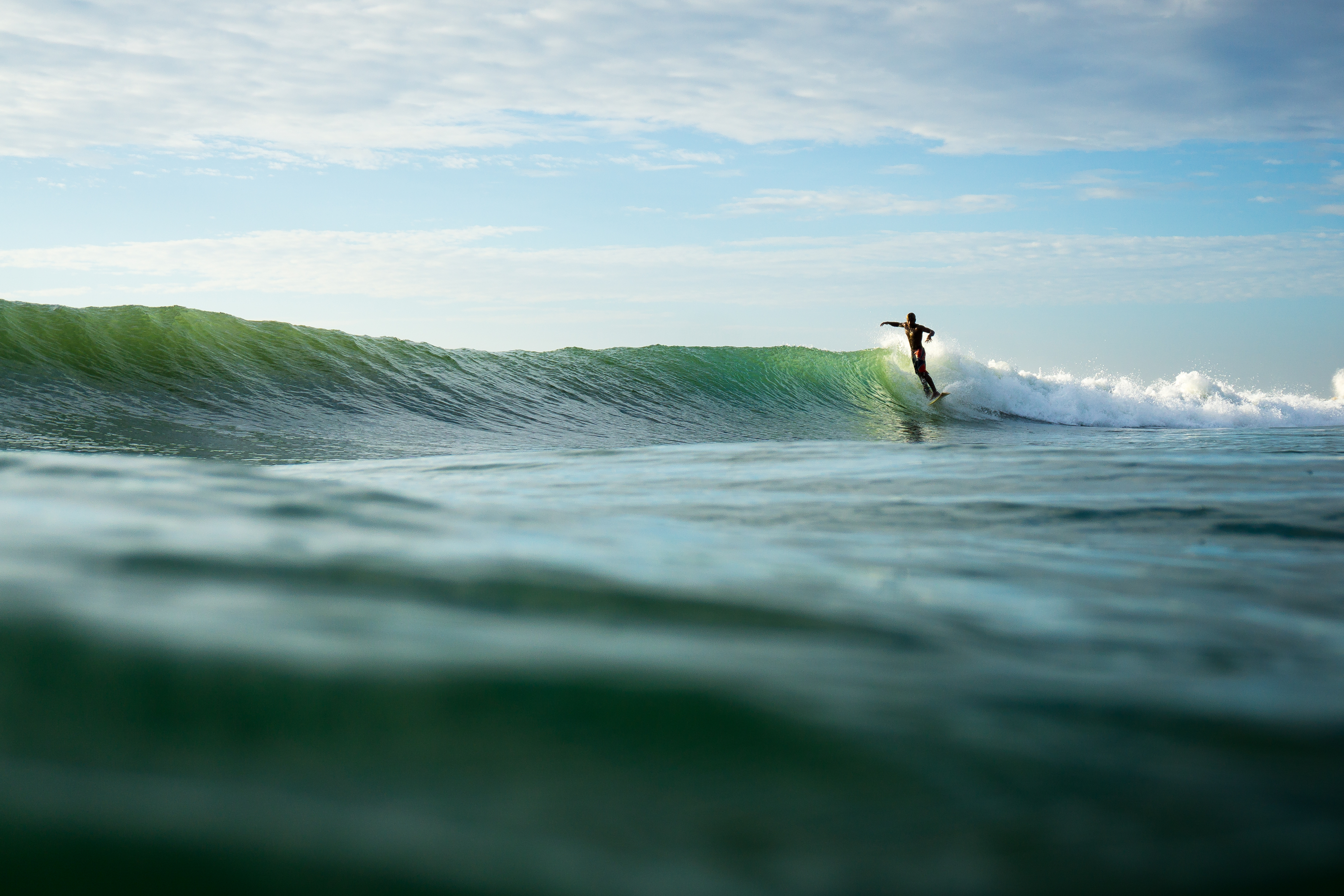
For 13-year-old Kishore Kumar, one of Selvakumar’s students, this is thankfully not a problem. His father, a recovering alcoholic, not only accepts his surfing passion but also encourages him by cheering at his competitions.

“The fishing community and surfing culture have a lot to gain from each other,” said Rammohan Paranjape, vice president of the Surfing Federation of India, the national governing body for surfing. “In terms of tourism, the sport is growing every year, bringing even more business opportunities for fishermen in the form of homestays, restaurants and shops.”
But he believes India still has a long way to go in competitive surfing. “It takes years of development at the grassroot level,” he said. “India has some great surfing spots, but they may not be world class. Surfers require training in different countries and locations so they can become better surfers and more competitive.”
Back in Mahabalipuram, Mumu’s next-door neighbour, 17-year-old Akilan S, has won several national surfing competitions, including the Covelong Point Surf Festival. He can glide through barrel waves, create shapes on them, and even perform aerial tricks.
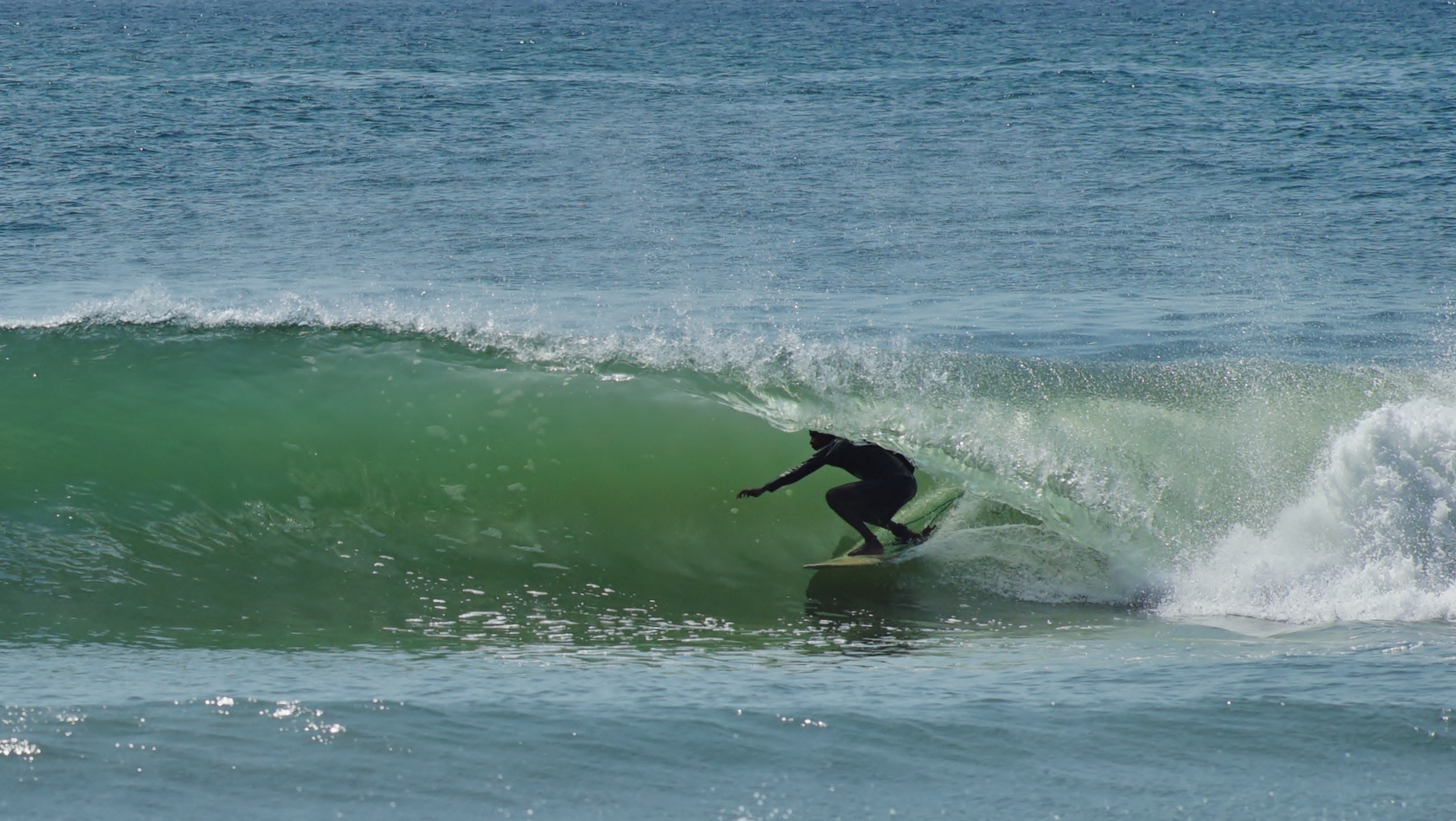
Now, he longs to practise on waves in Sri Lanka, Bali, or the Maldives – places that are relatively closer to India. His dream destination is Australia. However, he can’t even afford the Rs 500 ($6.69) entry ticket and travel fare for competitions across southern India. He lost his father two years ago to liver failure caused by alcohol abuse. He dropped out of school after ninth grade to help out his mother, who sells fish in the local market.
If it weren’t for surfing, would Akilan have turned to alcohol, too? He can’t say for sure. But his childhood friend, surf companion, and translator for this interview, Sivaraj Babu, thinks he would have. “Because that’s what everyone in our village does,” he said.
One might expect that a parent’s problems with drinking would serve as a cautionary tale for their children. Yet, studies suggest that children of people who suffer from alcoholism are more likely to develop alcohol abuse disorders themselves.
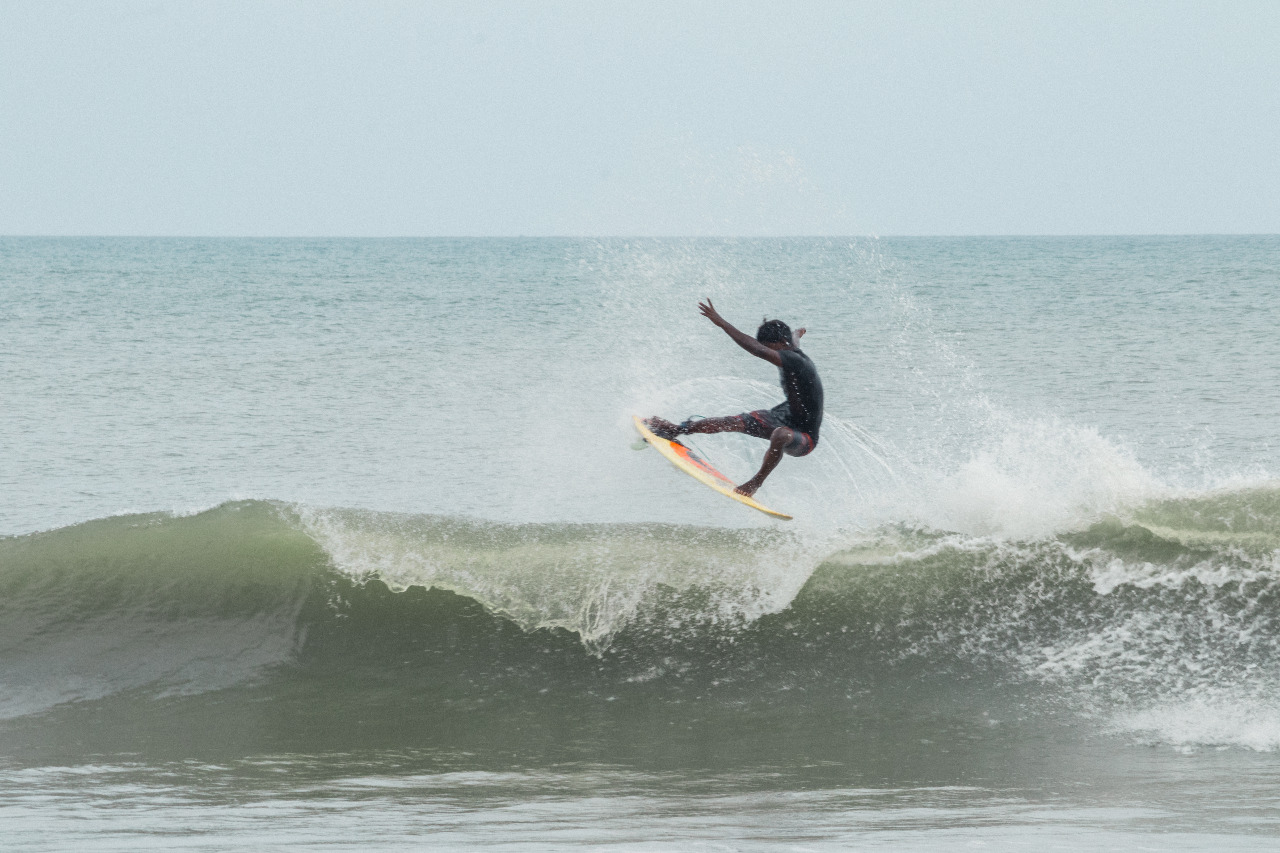
To Akilan, though, surfing is a different form of addiction. “The feeling I had when I caught my first wave is beyond words. I just knew I wanted more of it,” he said. “When I am in the water, I forget all my problems and only think about the waves.”
Akilan said that some young boys in his neighbourhood are already getting addicted to alcohol, but he and his friends don’t have time for that. They surf in the morning when Akilan returns from fishing, break for lunch for an hour or two, and then go back into the water. “If the waves are good, we don’t want to be on land,” he said.
Follow Shivangi Vaswani on Twitter.
More
From VICE
-

Screenshot: Shaun Cichacki -

(Photos via Liam Norris; baranozdemir / Getty Images)
